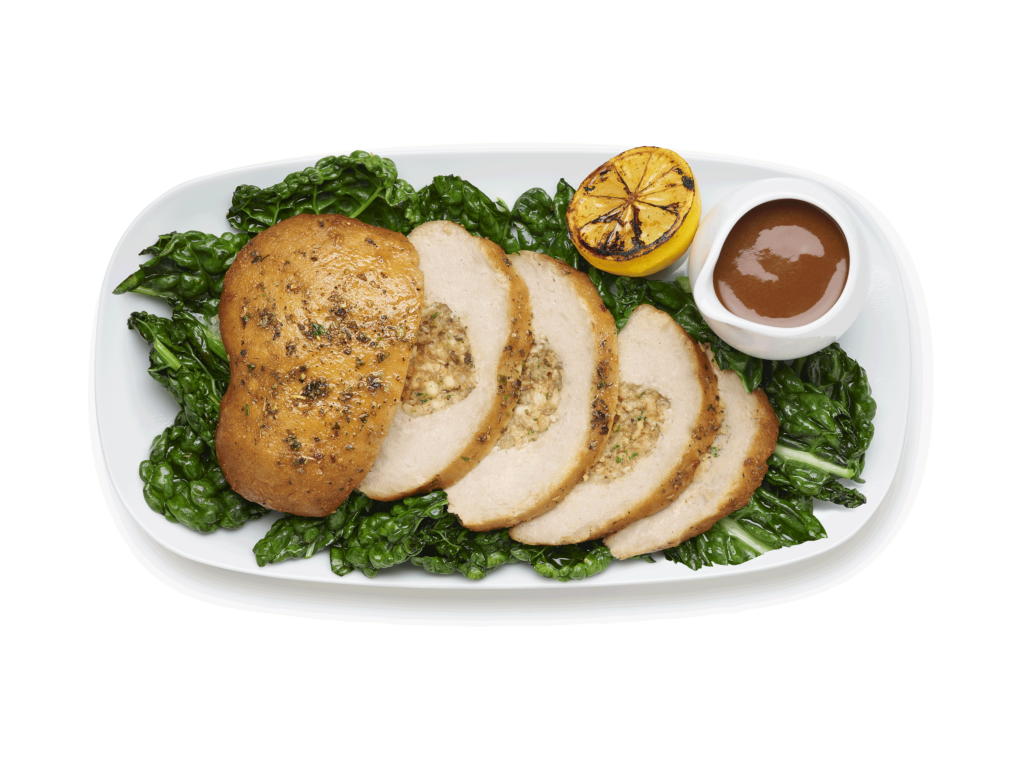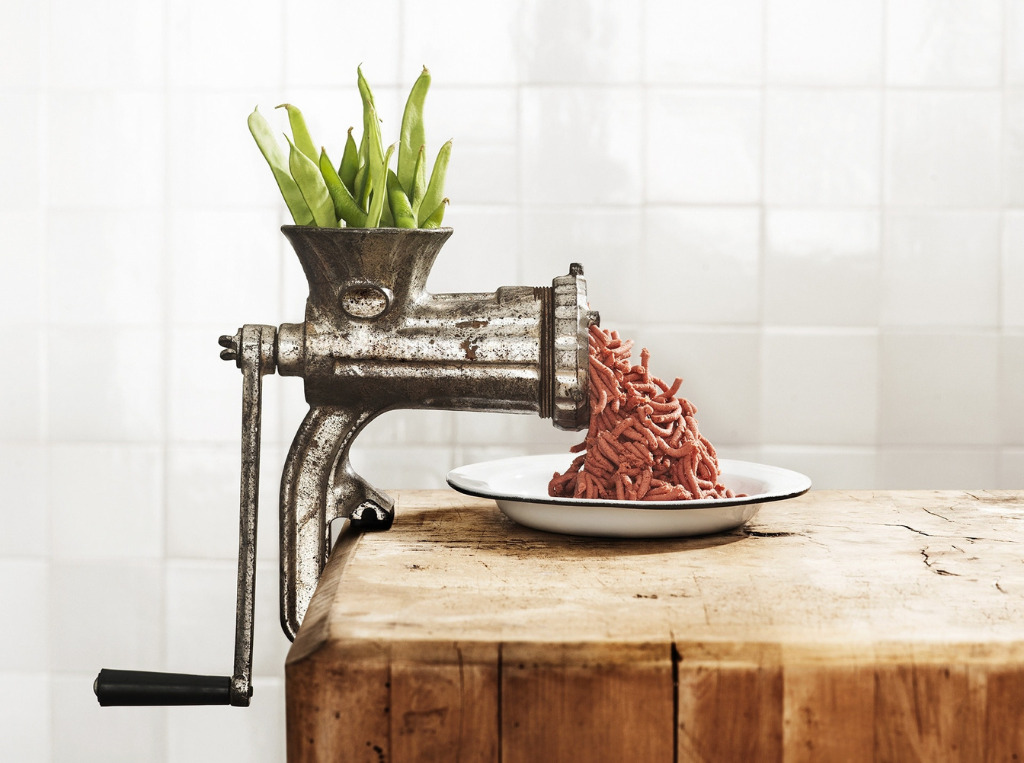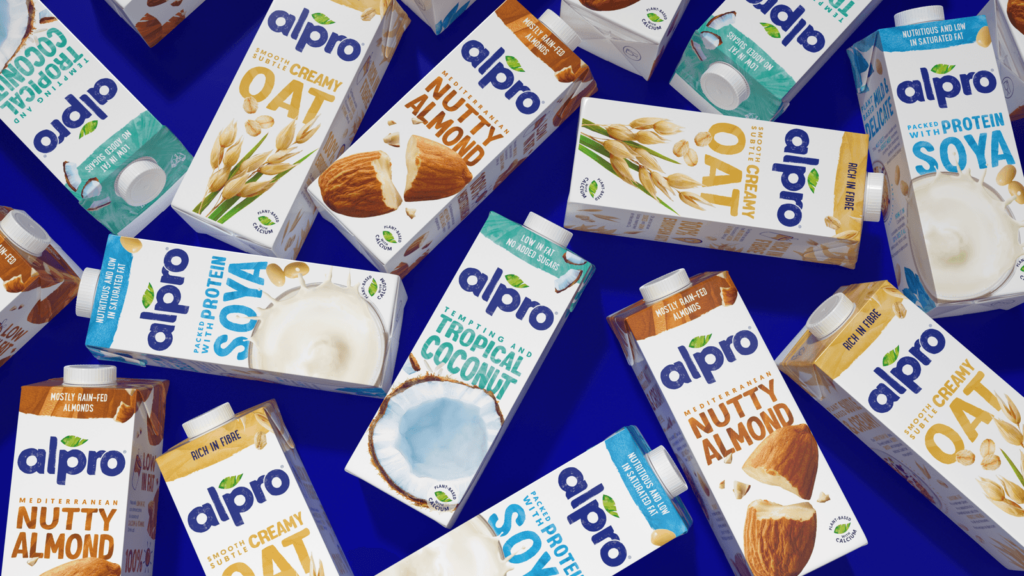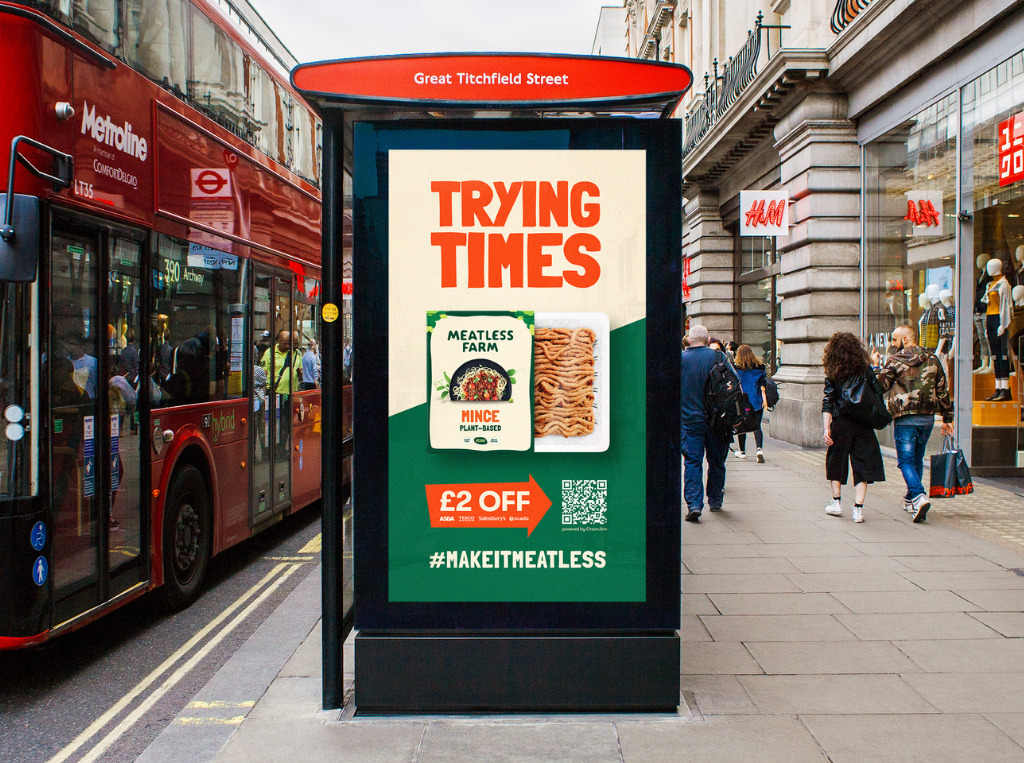Cost of Living: UK Meat-Free Sales Plunge While Inflation Masks Dairy Decline
7 Mins Read
New data reveals that meat alternatives were among Britain’s fastest-falling grocery categories this year, with the cost-of-living crisis squeezing consumer budgets. The sales decline for plant-based dairy leader Alpro, meanwhile, reflected the overall drop in volume for the UK milk market, which was masked by inflation-induced price hikes.
It has been another struggle of a year for plant-based meat – In the UK, where sub-brands have been withdrawn and other players have collapsed, sales are down year-over-year, primarily due to price constraints as a result of the higher cost of living.
This has meant it is one of the worst-performing grocery categories in 2023, behind only cigarettes, tobacco and alcohol. Sales have declined by £38.4m, while volume is down by 4.2%. On the opposite end of the spectrum, fresh meat was among the fastest-growing sectors, with £352.5M in sales growth.
One of the few categories that surpassed meat was milk, whose sales values were up by £497.6m – but in both these segments, inflation is masking the true trend: volume is down by 181.9 million litres for milk, for example, while the rise in sales for chicken (the top-performing food) was largely driven by a 13.4% price hike. This is reflected by the fact that Brits have been eating less meat and dairy than ever recorded.
The milk market was hit by a fall for plant-based dairy market leader Alpro, which experienced the biggest percentage loss among the top 30 brands in the sector. Once again, the usually higher price of milk alternatives was a key driver here. This is according to NielsenIQ data for the Grocer’s Top Products survey for 2023.
A tough year for plant-based meat

2023 was a year that saw British plant-based meat businesses like Plant & Bean, LoveSeitan and VBites fall into administration, just as Meatless Farm was rescued from the brink by fellow alt-meat maker VFC. Meanwhile, the world’s largest FMCG brand, Nestlé, withdrew two plant-based lines from the UK market, one of which was its alt-meat brand Garden Gourmet, just as Heck reduced its meatless range from 10 products to just two.
These events reflected a loss in consumer confidence in this category, with high prices keeping them away from grocery baskets. “After many years of strong growth, the meat alternatives market has fallen into decline,” said NielsenIQ senior insight analyst Carol Ratcliffe. “Shoppers are less willing to pay the premium associated with meat alternatives and are switching to cheaper sources of nutrition.”
The UK’s alt-meat market leader Quorn, which had reported a £15.3M in its annual accounts earlier this year, is down 8.1% in volume, but has seen a small spike (+0.2%) in value, reaching £155.8M. “We have seen huge changes in consumer behaviour led by turbulence in the global economy and this has led to a slowdown in the meat alternatives category, but it comes against a backdrop of many years of strong growth,” said Gill Riley, UK consumer director for Quorn.
Its closest rival Linda McCartney actually suffered the largest loss among the top 30 brands, down by £6.6m. Richmond and Cauldron, the next best on the list, lost 3.1% and 11.2% in value sales. “Inflation of meat-free ingredients has been ahead of meat, which has meant meat-free has become a pricier option,” explained Chris Doe, UK marketing and innovation director at Pilgrim’s Food Masters (the parent company of Richmond). “In turn, the industry has seen flexitarian shoppers increasingly switch back to meat.”
Challenger brands on the rise

On a more positive note for the industry is the rise of challenger brands like THIS and VFC, both makers of vegan chicken. The former has seen its value expand by 46.6%, with volume up by 66.6%. This was driven by a £15M Series B fundraiser in March, which allowed the company to invest in R&D and launch new products like a roast chicken and a chicken and bacon pie, according to NielsenIQ’s Ratcliffe.
“Innovation has been a core part of its growth over the last two years as it has diversified into a wider range of segments, including frozen, ready meals and food to go, as well as continuing to launch new products in its core segment of chilled meat alternatives,” she said.
THIS marketing director Dee Bulsara explained that quality is key when it comes to new launches, which don’t happen “unless we think the product can trick a meat-eater once it’s in a dish”. Additionally, increased store listings has also helped THIS. “The market is consolidating, with declining brands coming out, which has allowed us to really grow,” she noted, echoing THIS CEO Andy Shovel’s comments to Green Queen in October. “No supermarket needs 18 types of burgers, so it’s really important to make the category easier to shop.”
Meanwhile, VFC, which has expanded its meat-free portfolio with the acquisitions of Meatless Farm and Clive’s Purely Plants this year, saw an exponential rise in sales value (+199.3%). Despite that, however, it retains a tiny share in the overall meat-free market – as does THIS, whose total value is dwarfed by that of Quorn’s, which is nearly 10 times as high.
Prioritise innovation, taste and texture

Expanding on Bulsara’s point, Ratcliffe noted that maintaining high quality will allow brands to justify their price premiums “via clear flavour, format or nutritional benefits”.
Moreover, Squeaky Bean marketing controller Becky Youseman outlined the importance of innovation – the brand has unveiled a host of new products amidst an 8.8% drop in volume: “Successful brands are offering NPD that either brings something totally new to the market or fills a gap to answer a consumer need,” she said.
Georgina Bradford, marketing director of nutrition at Unilever, added that “taste and texture really are king”. This aligns with recent consumer research revealing that for 51% of Brits, taste/texture is the biggest reason for reduced plant-based meat consumption, with nearly two-thirds (66%) agreeing that some meat alternatives taste much worse than their conventional counterparts.
“It sounds obvious, but growth will only follow if shoppers love the taste of the product,” explained Bradford. “It’s why our R&D teams are focused on taste and texture. We go through countless prototypes and iterations before we go to market with a new plant-based product.” Unilever-owned The Vegetarian Butcher has witnessed value and volume growth of 8.2% and 9.9%, respectively.
Pilgrim’s Doe expects the sector “to face ongoing pressure as shoppers watch their spending well into 2024″, but Quorn’s Riley believes the alt-meat category will “recharge, rebuild and head back towards growth”, as there is still “sustained interest in eating meat-free”.
It’s up to giants like Quorn, whose sales decline is being paved with optimism, to lead the way here. Another similar case is US producer Beyond Meat, which has had a bad year overall, but saw volume up by 26.2% and value sales by 18.4%, adding £2.7m to its value.
Alpro drives milk decline, but Oatly’s value rises

Speaking of industry giants, Danone-owned alt-dairy brand Alpro – which went through a brand refresh this year – has been one of the key factors behind the milk category’s decline, according to the Grocer. With volume falling by 22% (24.3 million fewer litres), it’s the biggest percentage loss in the top 30 milk brands. Its £13.7M loss is also the largest in the milk sector.
“Inflation and the cost of living have tempered recent growth rates,” acknowledged Danone’s head of category, Tom Kerr. “In many households, plant-based products are only consumed by one person. So, naturally, when people look to save money from their weekly shop, it is plant-based items that are left on [the] shelf.”
This has meant the withdrawal of certain products and brands in this space. Nestlé ended its Wunda pea milk line, while Innocent bid adieu to its three dairy alternatives – oat, coconut and almond – both due to poor sales. The one company that serves as an exception here is Oatly, which is a surprise given how rocky the last two years have been for the Swedish oat milk maker.
The UK’s second-largest alt-milk brand, Oatly saw a modest volume growth of 0.3%, while higher prices – its average price per litre is 6.9% higher than Alpro – mean its value is up by 9.8%, becoming one of the only two businesses in the top 10 (alongside Müller) to expand in volume. This is credited to the company’s new recipe for its Light, Semi and Whole Oat Drinks, as well as the launch of a No Sugars oat milk.
And despite the fluctuating fortunes, Alpro and Oatly only trail dairy giant Cravendale in total value across the UK milk market, ahead of companies like Freshways, Müller, Lactofree and Arla – signalling that consumer demand for dairy-free still persists.
“The cost-of-living crisis continues to impact UK consumers and our data shows that this has had an effect on how they shop for groceries and what they choose to put in their baskets,” said Rachel White, UK and Ireland managing director at NielsenIQ. There has been a real emphasis, despite inflation, on stripping it back to traditional items, such as fresh meat and dairy products and a move away from trying more expensive meal solutions, which have shifted the dial in terms of the meat-free category. Whether this will have an impact in January when many like to experiment with Veganuary, remains to be seen.”




